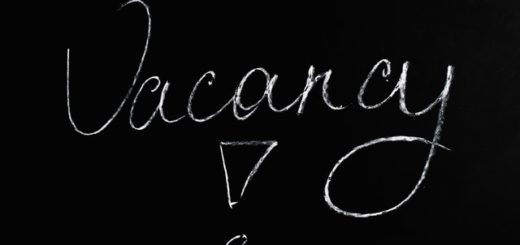FEMNET is hiring a Facilitator for ”THE AFRICAN FEMINIST MACROECONOMIC ACADEMY (AFMA)- EASTERN AFRICA “
Expression of Interest: FNT/EOI/06/2022
Duration: 10 days
1. Background
Since 2017, the African Women’s Development and Communication Network (FEMNET) has been deepening knowledge and enhancing capacities and skills for a cohort of women leading and driving initiatives around economic justice advocacy. This has resulted in having a handful of passionate feminists and gender advocates engaging and influencing macroeconomic policies and frameworks from a feminist perspective.
It has also seen a number of women’s rights organisations prioritising advocacy for women’s economic justice and empowerment, although a gap still remains where many of these organisations have limited exposure, skills and tools to analyse and influence fiscal and wider macroeconomic policies and frameworks from a feminist perspective. Evidence shows that there is dearth of contextualised information and knowledge based on feminist analysis of critical macroeconomic policy issues and processes such as Illicit financial flows, informal trade, unpaid care work, decent work, tax justice, international financial institutions in the region and on the continent, to inform strategies for advocacy for women’s economic justice. As a result, efforts by women’s movements and women’s rights activists in the region largely focus on responding to the impacts that these macroeconomic policies and processes have on women – often seeking to remove the immediate hardships – with limited focus on challenging the fundamental structural and systemic causes of gender inequality.
FEMNET, through the annual feminist academies continues to advance transformative approaches that challenge the structural causes and remove the barriers through creating structured learning platforms for selected key activists, movement leaders, academics, journalists and diverse networks working towards achieving women’s rights, economic justice and gender equality. The aim is to deepen their appreciation of how macroeconomic policies shape the lived realities of the women whose lives they are working to transform, and how their efforts at the local level can influence and shape these policies.
2. Purpose
There is need to invest in building the capacity of women to actively participate in the formulation of inclusive economic and development policies. In particular, is the need for women to effectively engage with and influence macro-economic policies as they shape and have a direct impact on access to economic opportunities and resources including limited participation in leadership and politics, access to sexual and reproductive rights, violence against women and overall discrimination against women thus having impact on their lives. Macroeconomic policies shape and inform priorities in key social and economic sectors such as agriculture and natural resource extraction, health, education etc which are the key sectors that have disproportionate impact on women and girls.
This year’s AFMA will introduce participants to the gendered consequences of Africa’s Debt crisis. It is particularly difficult for African governments to fulfill their pledges to gender equality and the advancement of women’s rights because of the burden they bear in repaying public debt. A large percentage of the burden of this debt is placed on women’s shoulders, yet the money lent seldom goes toward supporting women’s rights. This year AFMA will work towards increasing the understanding of participants around macroeconomic policies including debt policies, which are designed with little or no regard for the realization of women’s rights. There is a need for robust empirical analysis of the looming debt crisis in Africa. Through the use of interactive case studies and presentations, AFMA will draw linkages between public debt, regressive taxation, cuts to public services etc. The course will delve deeper to the gender impacts of austerity measures and what it means for the quality of life for the women and girls of Africa in the midst of the COVID-19 pandemic.
3. Terms of Reference
Facilitators Tasks
- Review and execute the programme to ensure that it leads to the realization of outcomes of the workshop as stated in the Concept Note;
- Facilitate the THE AFRICAN FEMINIST MACROECONOMIC ACADEMY (AFMA) four days (21st -24th, February 2022)
- Ensure that Participants are facilitated to make contributions during sessions of the meeting, and that free sharing of ideas and strategies is equally encouraged from all participants;
- Develop the necessary documents/tools needed to realize the objectives of the workshop which include the guiding questions for the group sessions, Presenters and Moderators’ guidelines and evaluation at the end of the training;
- Work in collaboration with the Rapporteur to ensure that the final report of the THE AFMA2022 captures all discussions and recommendations from the workshop.
- Manage the whole process of the workshop in consultation with FEMNET ‘s Program Officer for Economic Justice to ensure that the objectives of the workshop are realized.
Deliverables
- Course content/ modules on public service delivery and financing in Africa
- Course content/module on gender and macroeconomics
- Based on the above contributions to the final (AFMA)2022 report
- Guiding Questions for the group sessions
- Guidelines for Moderators and translators
- Evaluation tools
Key competences of the consultant
- Advanced university degree in Economics, Development studies, Gender studies and Social sciences studies is preferred, although relevant profiles may be considered.
- The consultant should espouse Pan African Feminist values
- At least 5 years relevant experience supported by strong research skills.
- Evidence of completion of previous equivalent assignments
- Sound theoretical and practical background in the field of Gender and Macroeconomics, Women’s economic empowerment, debt, austerity policies, tax ,economic justice and citizen participation.
- Africa Regional experience, working similar issues.
- Experience with policy making process and basic principles of public policy research will be an advantage.
- Strong writing, analytical and research skills, and ability to apply them in interdisciplinary contexts and innovative problem-solving ability
Other attributes
- A track record of producing innovative, out–of–the-box thinking communications strategies and product
- Excellent communication skills and fluency in spoken and written English.
- Capability to deliver with quality and within tight deadlines
- Ability to break down complex information into user friendly knowledge products
4. Duration of the Task
The work will be done for 10days which include 5days for preparation, 4 days for facilitation of the workshop and1 day for writing the report.
5. Liaison, Coordination and Reporting
The AFMA Facilitator will work closely with FEMNET’s Economic Justice and Rights Programme Officer.
6. Selection of Consultant
The consultant shall be contracted by FEMNET. The contract will include Withholding Tax (WHT) deduction in line with laws of contracting where FEMNET is headquartered. A WHT certificate will be issued to the consultant. Payment will be done through bank transfer to the consultant bank account. FEMNET will not meet the costs of bank charges. Payment schedule will be agreed upon with the consultant upon successful selection. In case of team/firm applicants, a designated assignment contract manager will be the contact between FEMNET and the team and responsible for all deliverables.
7. Intellectual Property Rights
The consultant expressly assigns to FEMNET any copyright arising from the outputs produced while executing the service contract. The consultant may not use, reproduce, disseminate, or authorize others to use, reproduce or disseminate any output produced under the service contract without prior consent from FEMNET.
8. Terms of Service
This is a non-staff contract and therefore the consultant is not entitled to insurance, medical cover or any other status or conditions as FEMNET staff.
9. Application Process
Interested applicants should send the following:
- Not more than 1-page financial proposal.
- CV of not more than 3 pages with names and contacts of 2 professional referee
- Sample work from similar assignment
Applications are by e-mail only, sent to: recruitment@femnet.or.ke. Please indicate the reference on the subject line as ‘FNT/EOI/06 /2022 AFMA Facilitator’
Deadline for submission of applications is on 4th February 2022
Please Note: Our recruitment and selection procedures reflect our commitment to safety for all in all our activities. Criminal record checks will be undertaken for successful applicants. FEMNET is committed to welcoming people from the widest possible diversity of backgrounds, culture and experience. We will make any practical adjustments to enable people with disability participate fully in an inclusive working environment. Please let us know in advance if you have a disability and require any special assistance in making your application, attending an interview and carrying out the task.
FEMNET upholds the highest ethical standards. We are committed to the prevention of sexual exploitation, abuse and harassment as well as other ethical breaches.
Only candidates who have been shortlisted for interview will be contacted.
For application: https://femnet.org/job/facilitator-for-the-african-feminist-macroeconomic-academy-afma-eastern-africa-on-february-21st-25th-2022-nairobi-kenya/








